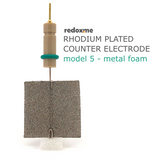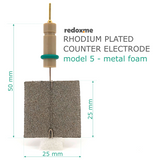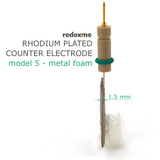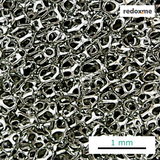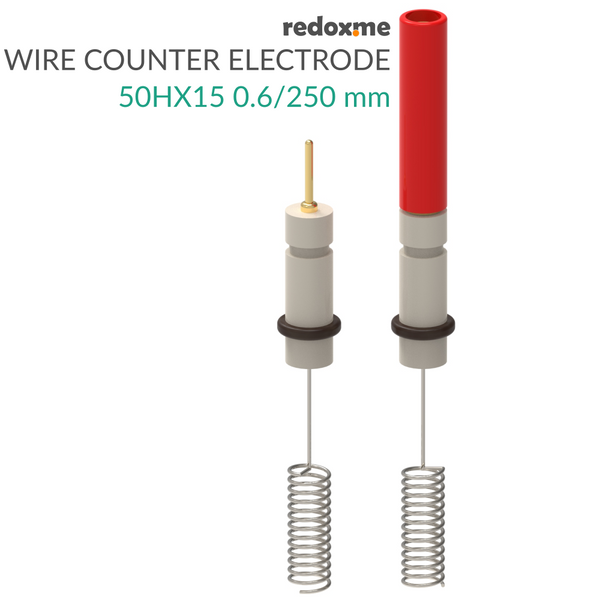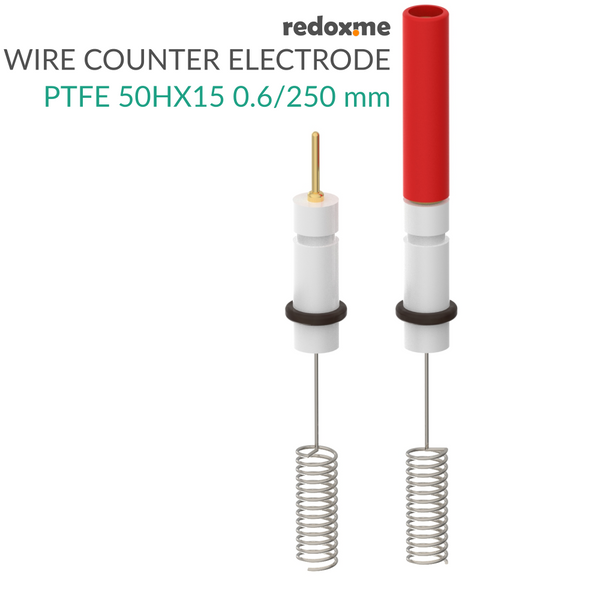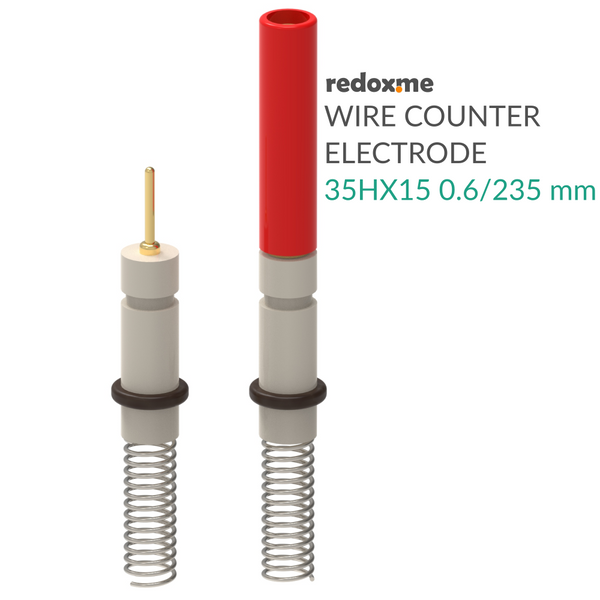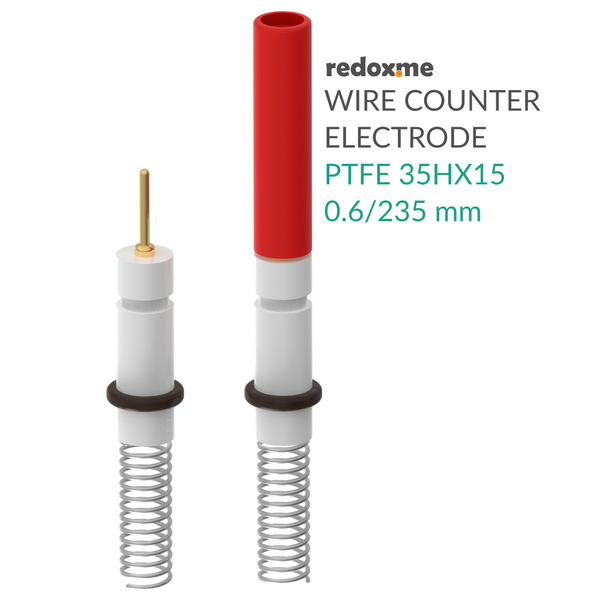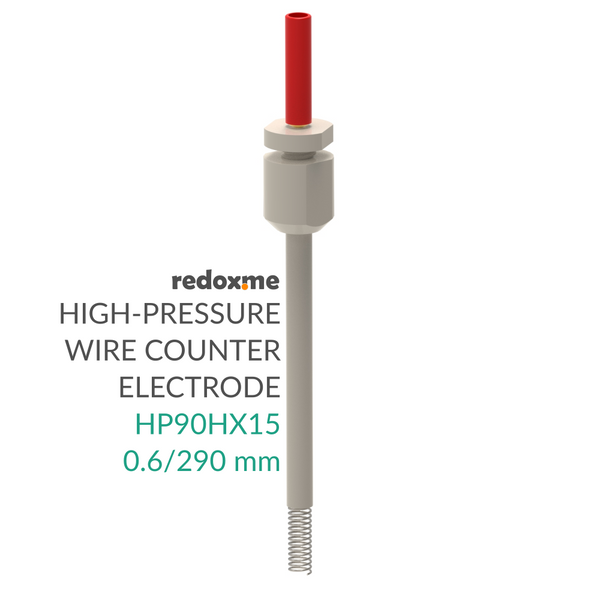Rhodium plated counter electrode model 5 – metal foam
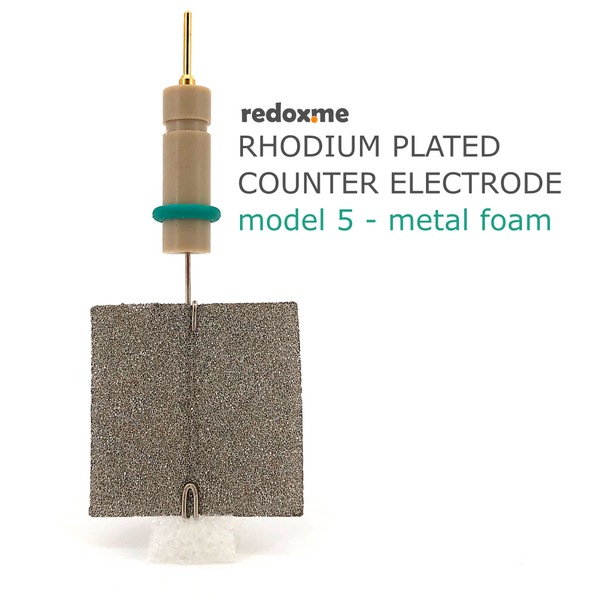
The counter (auxiliary) electrode provides a means of applying input potential to the working electrode. It completes the circuit and allow charge to flow between counter and working electrodes. The most commonly used material for the auxiliary electrode is platinum, due to its alleged inertness, reaction speed and catalytic properties. However, platinum dissolves under anodic conditions, which may seriously affect electrocatalytic activity and contaminate working electrode.
This rhodium plated nickel electrode is a cheap equivalent of platinum electrode. It is characterized by exceptional corrosion resistance and an extremely high surface area. It outperforms platinum electrodes in most electrochemical applications. This electrode is fabricated by electrodeposition of multilayer of noble metals on high surface area nickel substrate. The final layer is rhodium, which has excellent stability against corrosion in both acidic and alkaline solutions under anodic and cathodic polarizations.
Rhodium is an extremely noble metal, showing stability in the presence of aqueous solutions of all pH’s in the absence of complexing agents. At temperatures close to RT it is resistive to aqueous solutions of caustic alkalis, solutions of acids and oxidizing agents including aqua regia. The resistance of rhodium to chemical agents is remarkable and surpasses that of platinum. When used as an anode rhodium is normally unattached namely in solution of hydrochloric and sulphuric acids.
Application note
Rhodium plated electrode is suitable for studies of many electrochemical processes in aqueous and organic media. Rhodium is a well-known catalyst for water electrolysis (HER), direct ethanol fuel cells, organic electrosynthesis or oxidation of alcohols into organic acids. Thanks to the extremally high surface area, this counter electrode is a perfect choice for electrochemical characterization of highly capacitive materials for energy storage applications. Limitation: at very high current densities, elevated temperatures and low pH value (below 6 at RT) of an electrolyte, nickel ions may leak out to the solution causing its contamination, notable by green coloration.
Specification
substrate electrode: nickel foam and wires
surface density: 380 ± 20 g/m2
porosity: 99.8 %
number of pores per inch (PPI): 110
pore diameter: 0.2 - 0.6 mm
shape: square plate
plate width: 25 mm
plate height: 25 mm
foam sheet thickness: 1.5 mm
foam sheet area: 6.25 cm2
overall height (without pin): 50 mm
plug height: 20 mm
plug diameter: 6 mm
O-Ring size: ID: 4.47 mm, CS 1.78 mm
terminal diameter: 8 mm
Intrastat data
HS Code: 71103900
Country of Origin: Sweden
NET weight: 100 g
Product includes
1 x rhodium plated counter electrode with PEEK plug (6 mm dia.)
1 x O-Ring (ID 4.47 mm CS 1.78 mm), FKM (aqueous) or FFKM (organic)
Related products
Electrochemical cells
Electrochemical quartz crystal microbalance cells
Photo-electrochemical cells

